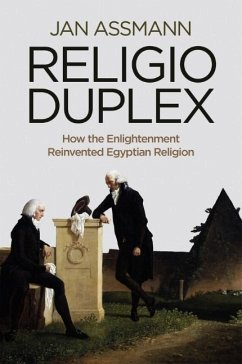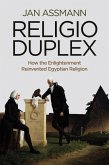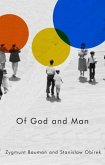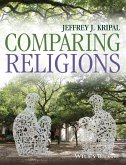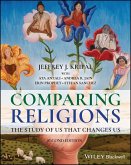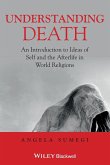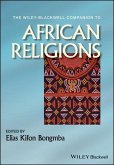In this important new book, the distinguished Egyptologist Jan Assmann provides a masterful overview of a crucial theme in the religious history of the West - that of 'religio duplex', or dual religion. He begins by returning to the theology of the Ancient Egyptians, who set out to present their culture as divided between the popular and the elite. By examining their beliefs, he argues, we can distinguish the two faces of ancient religions more generally: the outer face (that of the official religion) and the inner face (encompassing the mysterious nature of religious experience).
Assmann explains that the Early Modern period witnessed the birth of the idea of dual religion with, on the one hand, the religion of reason and, on the other, that of revelation. This concept gained new significance in the Enlightenment when the dual structure of religion was transposed onto the individual. This meant that man now owed his allegiance not only to his native religion, but also to a universal 'religion of mankind'.
In fact, argues Assmann, religion can now only hold a place in our globalized world in this way, as a religion that understands itself as one among many and has learned to see itself through the eyes of the other. This bold and wide-ranging book will be essential reading for historians, theologians and anyone interested in the nature of religion and its role in the shaping of the modern world.
Hinweis: Dieser Artikel kann nur an eine deutsche Lieferadresse ausgeliefert werden.
Assmann explains that the Early Modern period witnessed the birth of the idea of dual religion with, on the one hand, the religion of reason and, on the other, that of revelation. This concept gained new significance in the Enlightenment when the dual structure of religion was transposed onto the individual. This meant that man now owed his allegiance not only to his native religion, but also to a universal 'religion of mankind'.
In fact, argues Assmann, religion can now only hold a place in our globalized world in this way, as a religion that understands itself as one among many and has learned to see itself through the eyes of the other. This bold and wide-ranging book will be essential reading for historians, theologians and anyone interested in the nature of religion and its role in the shaping of the modern world.
Hinweis: Dieser Artikel kann nur an eine deutsche Lieferadresse ausgeliefert werden.
"With his characteristic erudition and lucid prose, Jan Assmann explores a fascinating question: why is religion so often double-layered, with the religion of the philosophers arrayed against the religion of the fathers? His genealogy of religio duplex begins with ancient Egypt and Israel, with their mixtures of universalism and particularism, and extends to the modern search, by Gandhi and others, for a rapprochement between particular religions - Christianity, Judaism, Islam, Hinduism, etc. - and a universal religion of human dignity. Assmann's study brims with philosophical acuity, historical depth, and contemporary relevance."
Ronald Hendel, University of California, Berkeley
"Assmann is well placed to write such a book, and Religio Duplex is an interesting read covering a wide range of topics of various kinds, not least those concerned with belief and with public and private ritual. Students of the Enlightenment and of the nature of religion should read this volume."
James Stevens Curl, Member of the Royal Irish Academy, Times Higher Education
Ronald Hendel, University of California, Berkeley
"Assmann is well placed to write such a book, and Religio Duplex is an interesting read covering a wide range of topics of various kinds, not least those concerned with belief and with public and private ritual. Students of the Enlightenment and of the nature of religion should read this volume."
James Stevens Curl, Member of the Royal Irish Academy, Times Higher Education

